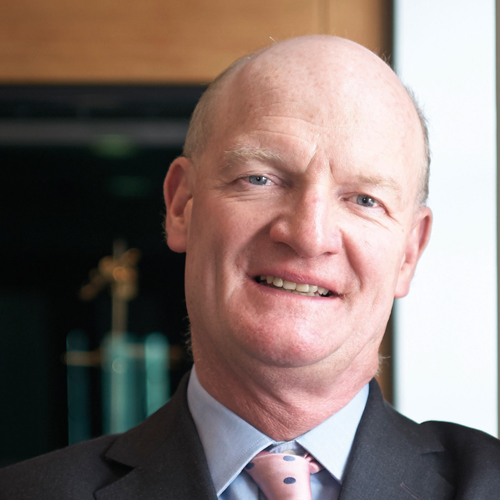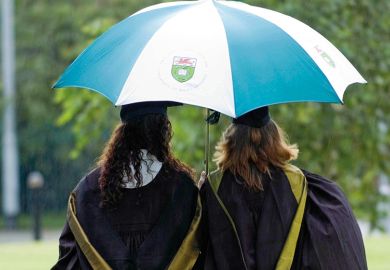I have an exceptionally bad habit – dog-earing the pages of books when I come across a telling point or a particularly juicy piece of information. I had to call a halt to this behaviour while reading A University Education. My copy was coming to resemble a concertina.
Such is the measure of this book. It is truly an expanse. Here, in among its 469 pages, lie chapters on the tangled groves of research and scholarship, the purple glens of university innovation, the verdant pastures of undergraduate education, and, depending on your viewpoint, the enlightened or malevolent mountain range of government policies. Add to that all the other excursions knitted into the book’s fabric – from early years learning, through the health benefits of going to university, to the history of the University Grants Committee – and the net result is a volume that will provide you with all manner of insights into the peculiar trajectory of the English higher education system.
Yet, even given its length and acuity, the book hardly takes in all that universities do. It is clear from the outset that the author is offering a survey of universities, however magisterial, that comes with a message. David Willetts – who served as minister for universities and science in the UK coalition government from 2010 to 2014 – is no zealot. But he is a man on a mission nevertheless.
He makes it clear that he loves universities (I have no doubt that he does), and he makes the usual disarming moves that have become a favourite of ministers. Universities must stay autonomous, of course they must. Education is a virtue in its own right, of course it is. We just need to make a few changes to spruce things up, changes that apply the now-familiar nostrum of markets and wider competition in order to thwart “producer interests”.
So the book contains a lot on promoting greater institutional diversity in higher education and valuing different missions. There is a lot on injecting more competition via a quasi-market. There is a lot on tuition fees. There is a lot on expanding higher education so that it can both boost access and educate more students at home and overseas. There is a lot on the “unfinished business” of changing the pattern of secondary and higher education, by producing a broader school curriculum, by expanding the amount taught at university and by promoting four-year degrees. Although the emphasis is on championing education, there are also various chapters on research, on innovation and on the technological revolution in teaching, but they take up less space.
As someone who would like to see at least some of the larger government tanks – the Panzers, if not the Shermans – moved off universities’ lawns, I inevitably had the same pick-and-mix reactions to these actual and mooted policy interventions as other readers will have. More institutional diversity? Not a problem if tightly regulated. Yet more competition? Dubious. More access? Tick. Expansion of student numbers? Not convinced that I would go as far as Willetts, nor am I as sceptical about apprenticeships. Tuition fees? Yes, but with adjustments. Expanding taught content and four-year degrees? Maybe, but this would likely have adverse consequences for research universities under current circumstances.
In each and every case, there are trade-offs in institutions working within constrained budgets, and these trade-offs are not always acknowledged. Neither is the fact that the compound effect of recent policies has been that the government has become increasingly intrusive in UK universities. Willetts recounts a discussion with civil servants about whether he should send Christmas cards to vice-chancellors. He and his advisers decided to hold off on the grounds that it might seem as though the principle of university autonomy was being infringed. But, although it is true that ministerial fiat is not meant to be fiat, it can look suspiciously like it when off to the side of the minister are all kinds of bodies that regularly intervene in university affairs and are heavily influenced by what the minister says and does, or indeed directly instructed.
There are many plaudits I could give to this prodigious book, however, being an academic, I have been trained to look for problems and I cannot easily throw off the habit. I will mention just three of the weevils in this particular biscuit because I think they are symptomatic.
One is bypassing all the aspects of universities that are there simply to make a contribution to civil society with no other motive in mind. The roster is lengthy. There is student volunteering. There are institutions such as libraries, art galleries and arts centres, museums, sports centres and the like. There are more general contributions to global citizenship such as the work that many universities do with African medical institutions.
Then, Willetts has a general suspicion of incumbency. In particular, his war with the idea that the only model of a university worth having is a research-intensive university, and his belief that government “should be on the side of the challengers”, lead him to conclude that there is therefore something wrong with the top UK research universities. They are able to escape competitive pressures by manipulating the social and political environment in favour of their model of a university. He declares himself ambivalent about their position. He cordially acknowledges how good they are, but somehow they have got where they have, or are staying where they are, through unfair means. I demur. The top research universities are what have given UK higher education its lustre and its global reputation. They are extraordinarily good at what they do, and many of them do it without the benefits that accrue to their international competitors. What more do you want?
Finally, Willetts never really addresses what lies at the heart of a university, its workforce. These people are “good and decent”, but in this book they are somehow shades or, even worse, part of the “producer interest”. A Nobel prizewinner appears here. A lab Willetts has visited appears there. But that’s about it. Yet it is the industry and, yes, vocation of these people that allow UK universities to remain so prominent. Specifically, the cutting-edge research performed by academics (whether “basic” or “applied”) is what keeps UK universities iconic in the eyes of the world. Great research depends on a spark of inspiration; but generally speaking, it takes work, work, work to reach one of those wonderful moments when something clicks and a new set of questions can be asked. Yet many academics involved in research will tell you that the problem they face now is a lack of that most precious of resources, time to think, because of all the other competing claims on their time. This gradual erosion of academic thinking time as yet another government-induced initiative rolls by is a serious issue.
It is not precious or retrograde to say this. Why? Because universities may be even more important than Willetts thinks. The planet is in a dire state and right at the centre of the solutions to our many woes – new ways of thinking, new practices and products, new technologies and even industries – are and will be universities. We are going to have to think our way out of the mess we are in, and much of that thinking will take place in universities.
So to summarise, this is an excellent book by someone who, as I can personally attest, amazed academic colleagues from other countries who heard him speak on ministerial trips because he was so clearly an expert on universities – in contrast to their own ministers. But being an extremely knowledgeable reformer comes with its downsides and especially a certain confidence that you are on the right track. No doubt I should cap this review with a cautionary quotation from another noted university reformer such as John Henry Newman or Lord Robbins or Clark Kerr, but I think another quotation may be more appropriate, from Joni Mitchell: “You don’t know what you’ve got till it’s gone.”
Sir Nigel Thrift has just stepped down as executive director of Schwarzman Scholars, based in Beijing and New York. Before that, he was vice-chancellor and president of the University of Warwick. He is currently writing two books, one on cities and the other, inevitably, on universities.
A University Education
By David Willetts
Oxford University Press, 480pp, £25.00
ISBN 9780198767268
Published 23 November 2017

The author
Lord Willetts, who served as the UK’s minister for universities and science from 2010 to 2014, is executive chair of the Resolution Foundation, a visiting professor at King’s College London and an honorary fellow of Nuffield College, Oxford.
“I’m a politician who did PPE [philosophy, politics and economics] at Oxford,” he says. “It is such a cliché. But I loved all three subjects, and I have been studying PPE ever since. It brings different disciplines together to try to understand the modern world…The value of such a broadly based degree has influenced my thinking about university education.”
Willetts sees himself as “very fortunate in having a career that had included the Treasury, No 10, the Whips’ Office and the Cabinet Office before going to BIS [the Department for Business, Innovation and Skills]. It probably helped me to have a rough idea of how the centre of British government operated. And after that time at the centre, I really appreciated the opportunity to have real, specific departmental responsibilities.”
Reflecting on the sector today, Willetts “increasingly think[s] that early specialisation is the worst single feature of English education and, unfortunately, university power over admissions bears a significant share of responsibility as selective universities are after applicants with more prior knowledge relevant to their particular discipline than [institutions] in almost any other country…It is barbarism that in England so many school students lose contact with a large part of the world’s intellectual accomplishments at the age of 16.”
Yet despite such concerns, Willetts declares that he “love[s] universities, so it is great to be involved with them. Although I have my criticisms of them, the book is a long love letter – though possibly unrequited!”
Matthew Reisz
POSTSCRIPT:
Print headline: All campus corners are covered, but core constituency is absent
Register to continue
Why register?
- Registration is free and only takes a moment
- Once registered, you can read 3 articles a month
- Sign up for our newsletter
Subscribe
Or subscribe for unlimited access to:
- Unlimited access to news, views, insights & reviews
- Digital editions
- Digital access to THE’s university and college rankings analysis
Already registered or a current subscriber?




